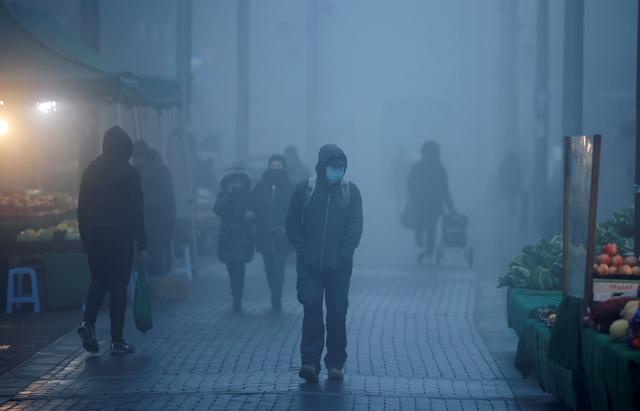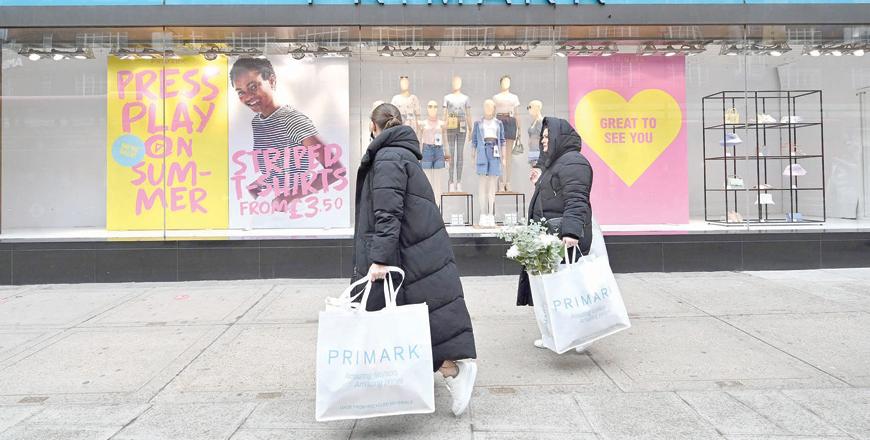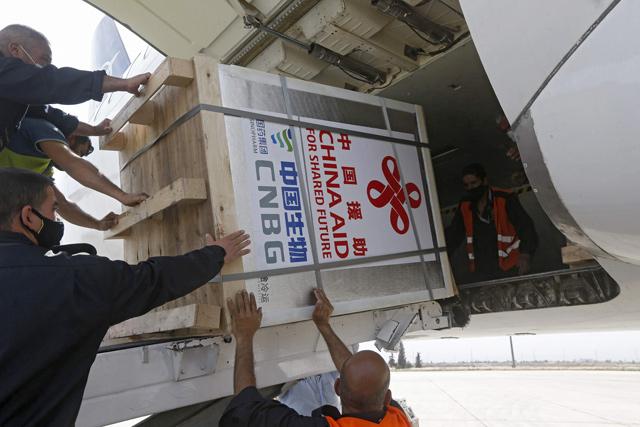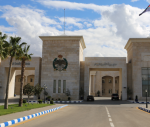You are here
Shoppers flock to England’s reopened high streets as lockdown ends
Dec 02,2020 - Last updated at Dec 02,2020
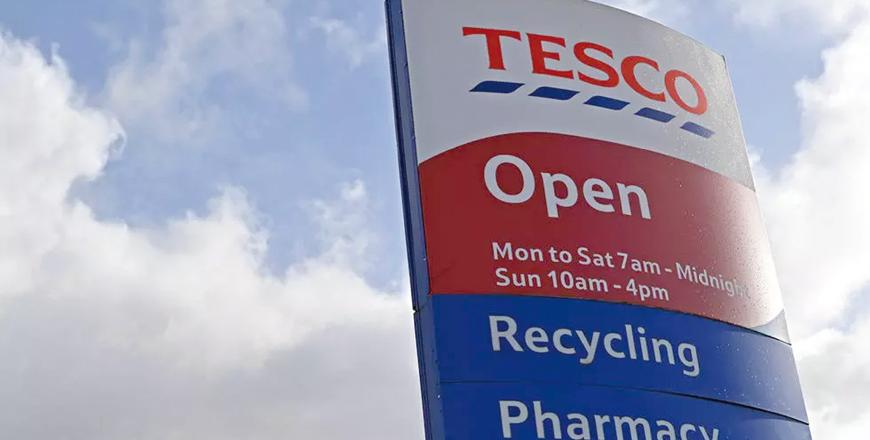
Tesco has decided to repay the British government for COVID-19 support it received after having weathered the pandemic (AFP photo)
LONDON — Shoppers returned to England’s high streets on Wednesday as shops reopened following the end of a four-week coronavirus lockdown.
On a day dubbed “Wild Wednesday” because of an expectation of huge numbers of shoppers, customers wearing masks and laden with bags flocked to stores on Oxford Street in central London.
One customer, Charlotte Cobb, told AFP the latest lockdown had been “tricky” but said she was “just so happy to be back”. “With Christmas, it’s just brilliant”, she said.
“I’m really excited.”
At Selfridges’ flagship department store, staff greeted crowds with applause and a sequined Santa Claus danced under glittering silver disco balls as customers shopped.
Store director, Maeve Wall said it was a Christmas “like no other,” and “certainly not one we would have anticipated”.
“It’s about making the experience as pleasurable as we can for customers, so we will maintain the fun and excitement,” she added.
The easing of restrictions has come as a relief to the hard-hit retail industry. Non-essential shops were forced to close, compounding losses made during lockdown from March to June.
But a new regional system for curbing the spread of the coronavirus is now in place, with parts of the country in the highest of three tiers still effectively shuttered.
The system — designed to allow families and friends to gather at Christmas — has been criticised as doing little to reinstate cherished freedoms and help the ailing economy.
Most of England’s 55 million population has gone straight into Tier 2 or 3, depending on local infection rates, limiting household mixing and the reopening of the hospitality sector.
Just 1 per cent of the country — the southwest county of Cornwall, the Isles of Scilly, and the Isle of Wight in the south — are in the least restrictive Tier 1.
Prime Minister Boris Johnson, himself a COVID survivor, succeeded in winning a vote on the measures in parliament on Tuesday night, despite opposition within his own Conservative ranks.
Economic concerns
Hopes that life could return to normal came a step closer after Britain announced approval had been given to roll out Pfizer-BioNTech’s COVID jab from next week.
The government, under pressure after 59,000 deaths in the outbreak, hopes to use it and other vaccines due to be given the green light alongside rapid community testing.
Relief also came for some of the most vulnerable as family and friends were allowed to visit care home residents for the first time in eight months.
Two visitors for each resident will be allowed twice a week, provided the visitors test negative for the virus. Physical contact is allowed using infection control measures.
Mixing of households outside support bubbles remains banned under the guidelines, although individuals can meet in groups of six outside.
London — Britain’s capital and driving force of the UK economy — is in Tier 2, meaning pubs where food is served and restaurants can reopen, obeying social distancing rules.
But in Tier 3 areas, which take in some 23 million people and includes Britain’s second city Birmingham, hospitality venues will remain closed except for takeaways.
Shopkeeper Robert, in Manchester, northwest England, said rates of infection had fallen in the city and surrounding area in recent weeks, but the area was in Tier 3.
“It makes no sense to me. And especially all the businesses now — hospitality... pubs, restaurants, bars, etc. — they’re going to suffer,” he added.
The restrictions have prompted fresh concerns for the economy, which finance minister Rishi Sunak said is facing a 11.3 per cent contraction this year — the worst in 300 years.
Those fears were stoked further this week by the collapse of retail group Arcadia, which owns popular high-street stores Topshop and Burton, and the Debenhams chain.
They have been forced into administration, blaming the impact of coronavirus restrictions on trade already under pressure from online competitors.
Related Articles
PARIS — Coronavirus deaths topped 400,000 on Saturday in Europe, the world's second worst-hit region, as parts of the continent began to reo
LONDON — British retail sales surged last month as non-essential stores reopened from virus lockdown, sparking a boom in clothing demand, da
PARIS — The number of COVID-19 jabs administered globally surpassed the one billion mark on Saturday, offering hope even as the number of vi


